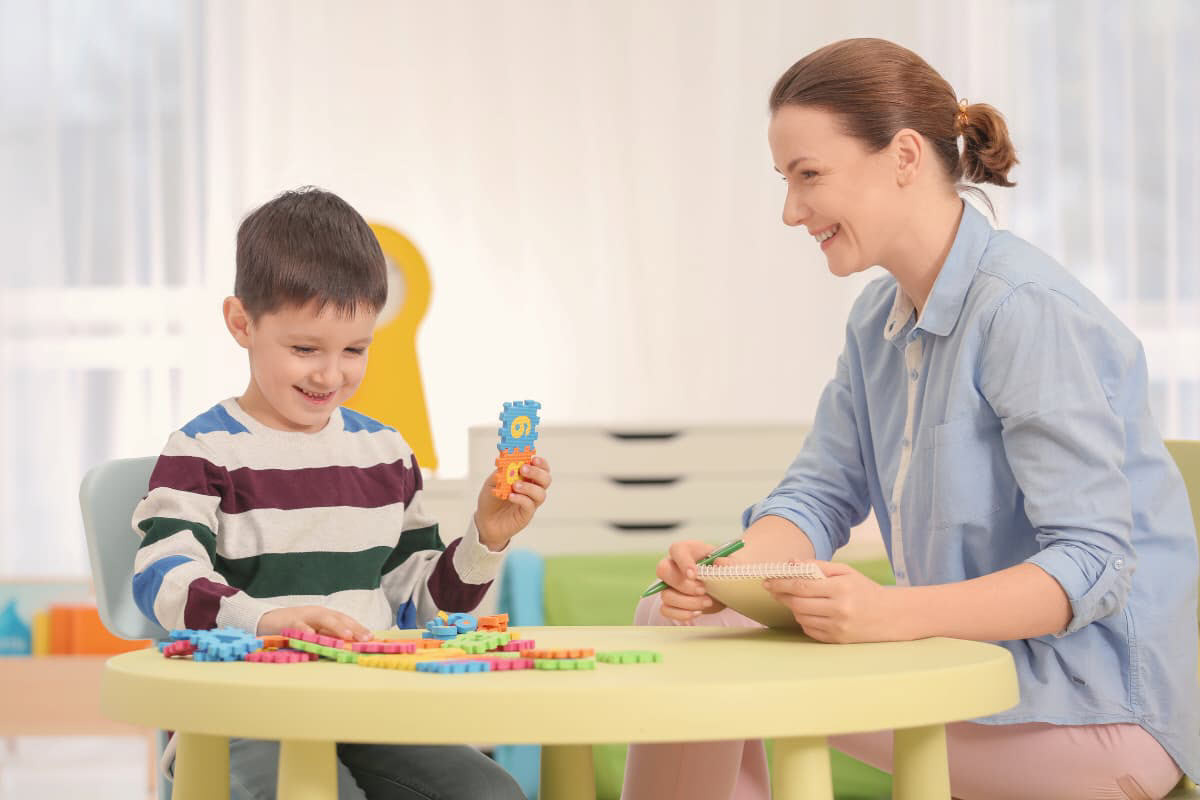If your child finds it hard to understand how other people think and feel, they might also find it difficult to talk about their own thoughts and feelings. As parents, it’s only natural to look for an explanation for what’s behind these challenges. Looking for advice and helpful strategies can make a big difference both at home and at school.
As autism spectrum disorder (ASD) presents differently in every child, accurate diagnosis can be challenging. Sometimes, children are mistakenly diagnosed with other conditions, like ADHD, or are told that there are no concerns. Other times, children receive a diagnosis even though they are not on the spectrum.
An autism assessment is often the most reliable way to determine whether a child is on the spectrum and provide clear next steps to support them.
Here is some information that parents may find useful to make sure that their child receives a full and accurate autism assessment.
Understanding Autism Assessments
An autism assessment is a detailed investigation into how your child thinks, communicates, and behaves. It’s not a single test but rather a collection of observations, interviews, and standardized evaluations. The goal is comprehensive: to understand your child’s unique strengths and challenges across multiple domains.
Many parents wonder if they should pursue an assessment, but it often comes down to their instincts. If you’ve noticed differences in how your child relates to others, communicates, or responds to their environment, an assessment can help clarify things.
Early evaluation matters tremendously, as research consistently shows that earlier interventions lead to better outcomes.
The assessment process varies in length. Some evaluations take place over several appointments spanning weeks, while others might be completed in a single day. The timeline depends on your child’s age, the complexity of their presentation, and the assessment team’s approach.
Who’s Involved?
Autism assessments are inherently multidisciplinary. No single professional can provide a complete picture of your child’s development. Instead, you’ll likely encounter several specialists working together:
- Developmental pediatricians focus on child development and medical aspects that might influence behaviour.
- Child psychologists administer specialized tests and observe how your child plays and interacts.
- Speech-language pathologists evaluate communication skills, both verbal and non-verbal.
- Occupational therapists assess sensory processing and motor skills.
These professionals bring different lenses to understanding your child. The psychologist might notice patterns in problem-solving approaches. The speech therapist may catch subtleties in conversation skills. The occupational therapist can observe how your child responds to sensory information. Together, they form a 360-degree view of your child’s development.
Before the Assessment: Preparation Steps
Preparing for an autism assessment benefits everyone involved. Start by gathering information about your child’s developmental history. When did they first smile? At what age did they begin speaking? How do they play with other children? These details matter enormously to the assessment team.
Next, collect relevant documents:
- Medical records
- School reports and evaluations
- Notes from teachers or caregivers
- Previous therapy evaluations
Consider keeping a brief journal in the weeks before the assessment. Note situations where your child thrives or struggles. Record specific examples of behaviours that concern you. These concrete observations provide valuable context for the evaluation team.
Perhaps most importantly, prepare your child. Use age-appropriate language to explain that they’ll be meeting new people who want to learn about them. Frame the assessment positively: “These doctors want to learn about all the things that make you special.” For older children, be honest but reassuring. Emphasize that this process is about finding ways to make things easier, not about finding “something wrong.”
During the Assessment: What to Expect
Assessment day often feels momentous for families, but knowing what to expect helps manage anxiety. Most comprehensive evaluations include several components:
- Parent/caregiver interviews dig into your child’s history and current functioning. Be prepared for detailed questions about pregnancy, birth, developmental milestones, and day-to-day behaviours. Your insights are invaluable, as you know your child best.
- Direct assessment involves structured activities with your child. The team might use standardized tools like the ADOS-2 (Autism Diagnostic Observation Schedule) to observe social communication and behaviour. These activities often look like play but are carefully designed to evaluate specific skills.
- Cognitive and language testing helps understand how your child processes information and communicates. These assessments identify both strengths and challenges in thinking and language development.
- Sensory and motor evaluations assess how your child responds to sensory input and their fine/gross motor abilities. Does bright light bother them? How do they handle different textures? Can they manipulate small objects?
Throughout the process, remember that the assessment team wants to see your child’s typical behaviour. If your child becomes upset or uncooperative, that’s perfectly normal. The professionals are experienced in working with children of all temperaments and abilities.
After the Assessment: Next Steps
Once the evaluation concludes, you’ll typically wait several weeks for a comprehensive report. This document collates findings from each specialist and provides recommendations. The wait can feel endless, but creating a thorough report takes time.
The final report often includes a diagnosis (if one is warranted), as well as specific suggestions for school accommodations, therapy referrals, and strategies to support your child at home. You’ll also have a feedback meeting where the team explains the results and answers your questions.
Don’t hesitate to ask for clarification or next steps. You deserve to understand the full picture. Most importantly, the assessment is not the end of the road. It’s the beginning of a clearer path forward.
Early support can make all the difference in a child’s development. If you’re considering an autism assessment or simply want guidance tailored to your child’s needs, don’t wait.
Get in touch with our team today to schedule a consultation and take the first step toward meaningful answers and lasting support.

